A war of more than 5 million casualties, but forgotten by the world
Author:Ideal country Time:2022.06.14

Not long ago, the ninth episode of "Love, Death and Robot" in the third season of "Gibbaro" was launched. Because of its amazing art design and the profound connotation of the bloody colonial history of Latin America, the word of mouth of the entire drama was pushed. To the new peak. The land that symbolizes the rich and unrecognized land is a woman inlaid with gold and silver jewelry. She is murdered and plundered because she misunderstood an invader by mistake.
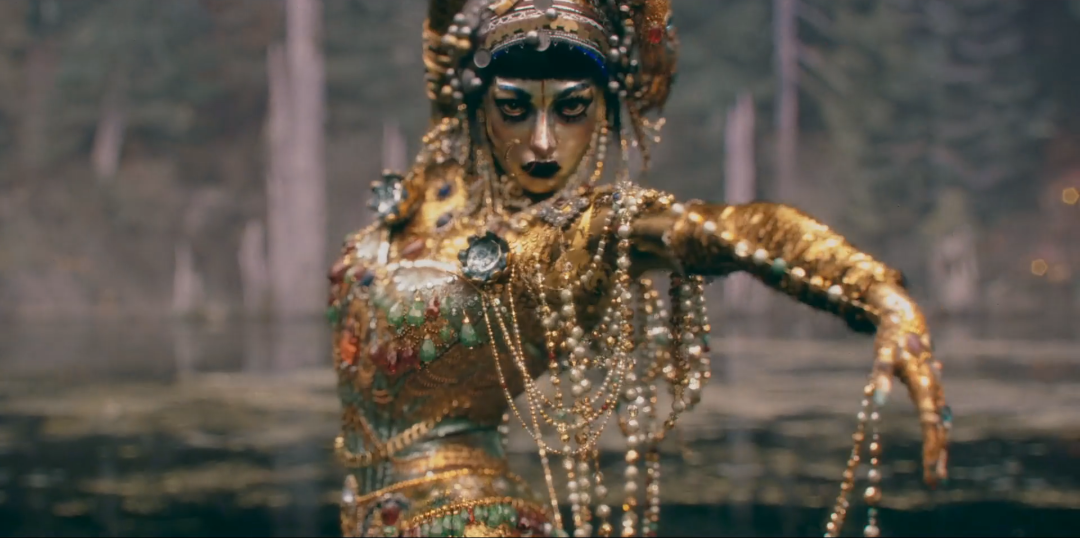
The meaning of the reflection of colonialism in this short film continues the wave of colonialism in the 1960s and 1970s. Freuderick Jameson, a well -known contemporary cultural criticism theorist, believes that the third world countries get rid of colonies and embarked on the road of national independence is the real starting point in the 1960s. Knowing us. It seemed that in that era, the third world finally ushered in the dawn of independence and happiness.
However, on the vast African land, even if it gets rid of colonialism, the dawn is far from coming. The Democratic Republic of the Congo in central Africa is a rich treasure country with a wealth of minerals, and its area is a bit equivalent to the entire Western Europe. Since the Belgian colonists left in the 1960s, the Congo not only did not embark on the road of happiness, but had erupted two Congo wars one after another. The Second Congo War, which began in 1998, has 9 African countries, and about 20 armed organizations involved in it, known as the "African World War". Its final casualties exceeded 5 million -almost equivalent to the number of casualties with a casualties of about 6 million in World War II -after signing a suspension agreement in 2003, the conflict and violence continued.

A woman is walking away from the Congo Democratic Republic of Democratic Republic. This area conflict after waves, women are often the most vulnerable group. /Unhcr/m.sibiloni
Franz Faron once said: "Africa's shape is like a pistol, and the Congo is its trigger." Chervara had participated in the Congo, and finally had to give up, leaving a Congo person. " Good revolution preparation. " Such a terrible large -scale war is rarely known. Even the news media does not know how to report it, because it has almost no clear cause.
As the author of the Congo War: Failure and the Forgotten African War "author, American political scholar Jason Stanus wrote in the book, the Congo War seems that there is no primary narrative or ideology that can be "Explanation", it is not Nazi German -style brutal bureaucratic machines that launch a war. It may even be ordinary people who participated in the war. The cause of the people of the entire country into the "dark forest". History of rule.
Borrowing the concept of "mediocre evil" of Arrot, Jason Stanus combined his own root for the Congo for ten years to visit the surveys made by politics, warlords and civilians, and question what kind of political system has spawned violent conflicts and let ordinary ordinary conflicts and make ordinary ordinary conflicts and make ordinary ordinary conflicts and make ordinary people ordinary. People have become murderers; why is peace that is never one of the options for war participants.
Understand violence
(Selected from "The War of the Congo")
[Beauty] Jason Stanus
Power is the winner.
——Canch
01
The Congo War other than stereotypes
This is usually the case: I will call one of the people in the list of notes, tell him that I am writing a book about the Congo war, and want to hear him tell his story. Most people like to talk about their own lives, and almost everyone -the ministers of the Congo government, the military commanders, the former doll soldiers, and diplomats -will accept my interview request. We usually choose a public place to meet (because they are not used to talking about some sensitive topics at home or in the office), they will look at me: a 30 -year -old American. Many people asked me, "Why do you write this book?" I told them, I want to know the violence of the entire country since the outbreak of 1966. What is its root, they usually ask me: " Why do you think you can understand what I want to tell you? "
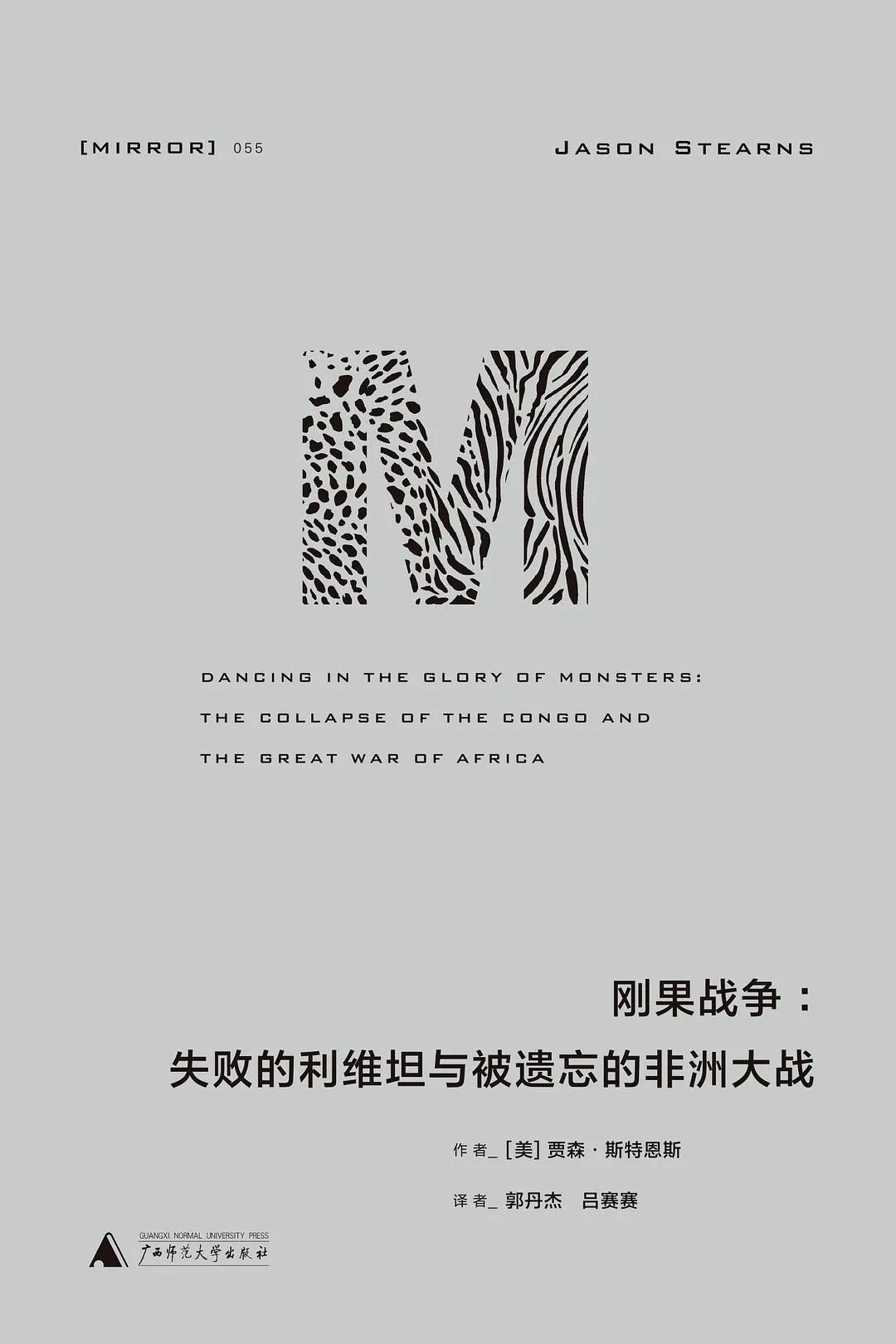
The ideal country translation Cong M055
"The Failure of Livatt and the Forgotten African War"
[美] Jaisen Stanus, Guo Danjie/Lv Saisa Translation
The interviewees often show their confusing eyes. In an interview, a military commander asked me how to think of the Congo most of the time. It seemed to want to spy on the bias deep in my heart before telling his story. "Everyone has their own ideas," he asked me, "What are your thoughts?" I also interviewed a unknown local warlord. The monkey's skull is made of evil necklaces. When I took a picture of him, he shook my head at me and asked me to delete the photo: "You will take my photos to Europe to show other white people. They treat me to me. What do you know about life? "He told me that he was afraid that those white people would laugh at him and treat him as a monkey in the jungle.
He has sufficient reasons. It is not a day or two to get away from the real scene disconnection to understand Africa's story and photos. As early as 1904, a missionary in the United States brought a dwarf named OTABENGA in the middle of the Congo to the United States. Otta Benga was locked in the Monkey Mountains of the Branks Zoo in New York. With a bad mouth, abnormal limbs and funny behaviors, it can attract more than 40,000 tourists to see the excitement every day. People showed him with the Red Moso Orangutan and let him perform a game with orangutan in order to highlight the similarities of expressing Africans and apes. The New York Times published a comment article to refute the demands that he released. The article says: "The Pigmy people are a low human ... that kind of human beings are mostly the same, but some people have the opportunity to receive book education Some people have no views, it has been outdated for a long time. "Although the report from the Congo did not have such amazing racial discrimination, it usually simplifies the conflict there into a Facebook drama. The characters in the story are usually like this: corrupt elements, brutal African warlords, and brutal soldiers, they are not doing, burning and looting in this country. Photos of soldiers who have ordered Anfi and marijuana -some people come from Liberia and Sierra Leine, a thousand miles away from the Congo. Poor black refugees: Children's face sticks to a dry nose, and flies are flying around. They are usually tolerated in refugee camps or domestic resettlement. Between these murderers and the victims, there is no room for the stereotypes that can challenge this kind of old tooth loss, let alone a reasonable explanation of an intricate violence conflict.
The Congo War is not a story that can be explained through these stereotypes. These stories are a product created by a deep historical, and this history is often known for the observer of the outside world. The protagonist of the story is not just a barbaric, either murdered by no mind or being killed, but humans who can think and breathe. No matter how abominable their behavior is, there are political considerations and motivations behind them.
The Democratic Republic of the Congo is a vast country. The land area is equivalent to Western Europe and has a population of 60 million. For decades, it is famous for its rich landforms, with huge reserves cobalt ore, copper ore and diamond ore. The same famous dictator Mobutusese SEKO Life, but it is not known for violence and degeneration.
After that, in 1996, a conflict broke out, and more than 5 million people were killed in total.
The Congo War had to be together with several major human disasters in our time: two racial massacres of World War I, Rwanda and Cambodia. However, despite the huge scale of this war, it did not attract continuous attention in other parts of the world. The number of deaths caused by it is so ridiculous that it has almost lost its meaning. From the perspective of the outside world, there seems to be no primary narrative or ideology that can explain the war. There is no simple tribal conflict or ideological revolution for news to grasp the article.
In Cambodia, there are brutal red cotton; in Rwida, people can claim the evil hats on the Hutu armed forces who have performed racially. In the Congo, these characters are difficult to find the corresponding people. There are no Hitler or Mussolini here. It is a war of ordinary people. Many participants are unknown. The reason for their fighting is very complicated, and they cannot be clear in one or two words -for international media, it is even more headache. How do you report a melee of at least twenty different rebel groups and military participation from nine countries, but it seems that even the clear reasons or goals do not have? How do you give the "four million" -the vast majority of the victims died without a sensation. They died of illness and did not appear in the lens on TV -such numbers set a Facebook?

The concept of this war is very chaotic, and it is impossible to simply define it. Many narratives are intertwined with each other. The New York Times is one of the few US media that have been widely reported in this war, but when reporting the conflict of Darfur, it used in the length of the 2006 report in the war in the Congo in 2006, and The Congo person who died in war was nearly ten times that of Darfur. Even the "New York Times" columnist Nicholaskristof who worked hard for the humanitarian crisis, at the beginning, also used the chaos of the Congo as an excuse to justify the number of reports -because it was not interested in it, so it was not strong, so Not so evil. He wrote like this:
Darfur is a racial extinction, and the Congo is a tragedy of war and poverty ... Millets are killed by each other, but the situation here is not that a certain ethnic group in the government use its army to slaughter other ethnic groups. This is what happened in Darfur: the Arab government in the Sudan capital Khaartoum armed the Arabs to kill the local African black tribe. Each of us has a moral criterion in our hearts, which is about the degree of suffering of human beings. I admit that the suffering of the Congo is more deeper. But our moral criteria are also affected by human nature, and this evil is more serious in Darfur. There is no more serious crime than ethnic extinction, this is the special feature of Sudan.
02
What is the evil of the Congo behind the "mediocre evil" behind the Congo War? How can we explain the tragedy of millions of people to death?
In 1961, a philosopher Hannah Arendt went to Jerusalem to listen to the trial of the Nazi war criminal Adolph Eichmann, and Esahman was accused of murder hundreds of thousands of Jews. Antter herself is the survivor of the Jewish Holiday. She is most concerned about the essence of evil. In her opinion, the reason why the large -scale slaughter of Jews can be implemented is that a huge bureaucratic system does not regard the victims as a person, and at the same time dilute the responsibility through administrative machines. Aihiman is not a perverted murderer, but a man who follows. "I just fulfill my duties." He said in the court in Jerusalem. Antter called it "evil mediocrity."
This book will be based on Antter's opinion. The Congo obviously does not have no human government machines like the Third Empire. Most killing and rape occur in melee combat. The murderers often use ax, knife and machete. It is difficult for us not to investigate the personal responsibilities of murderers and war leaders.
However, this kind of evil vision is a personal behavior that people who participate in the war have the evil nature that ordinary people do not have, and it is not helpful to us understand this war. What is more helpful is that questioning what kind of political system has spawned such violent conflicts. This book tries to observe the conflict from the perspective of war participants, and understand why war is more common than peace, why local political elites seem so enthusiastic about speculative, so lacking virtue.
The answers to these questions are buried in the history of this land. But the history of the Congo is not the story of a brutal bureaucracy; the fact is just the opposite. Its government has been weakened in hundreds of years. Once a war occurs, each ethnic group seems to have its own armed forces to launch brutal brutal. Uprising and suppress the uprising and kill each other. It is more like the 17th -century European and 30 -year wars, not Nazi Germany.

For hundreds of years, the outside world has been obsessed with the Congo. It is located in the heart of the African continent. There is the most difficult tropical rain forest on the mainland in the country, which is long -term related to war and unfairness. In 1885, when the colonial forces conspired to divide Africa, King of Belgian King Kingleopold II announced that Congo was his personal territory. He established a private enterprise called "Congo Liberty". In the high -speed growth period of rubber trade in the 1890s, Congo became one of the most critical areas for latex production required for cars and bicycle tires. The colonial government officials established a cruel system forced to work, which caused hundreds of thousands of workers to die or disabled, and indirectly caused millions of people to be hungry or died of the disease.
This atrocities promoted the first wave of international human rights movements. The movement was led by missionaries and social activists, including Marktwain and Arthurconan Doyle. For the huge pressure, King Lion Port II made concessions and handed over the Congo to the Belgian government in 1908. Although the Belgian government has established a more fine and complex management system, including a widely covered basic education system, the colonial government still puts their minds on plunder resources and never promotes the development of the country. The senior management of the army and the government is a clear white man. They block the law from the residential area of the upper society by formulating the law, and only a few Congo people can get the opportunity to be educated.
Map of the Democratic Republic of the Congo
When he was eventually forced to surrender the right to rule, the Belgian government had attracted Congo on the road that was destined to fail. The novelist Achille Ngoye once said angrily by the characters in his novel: "I don't like these uncle who dipped in egg yolk sauce to eat fries, because they brought to our country. Disaster: Seventy -five years of colonial rule; only a [Congo] pastor in 1917; by 1960, in a army full of [Congo people], there were five Congolese margots; When it was independent, there were five counterfeit college graduates. Under the suspicious standards, a few privileges selected became managers of this country through hasty training, and then made this country a mess. "
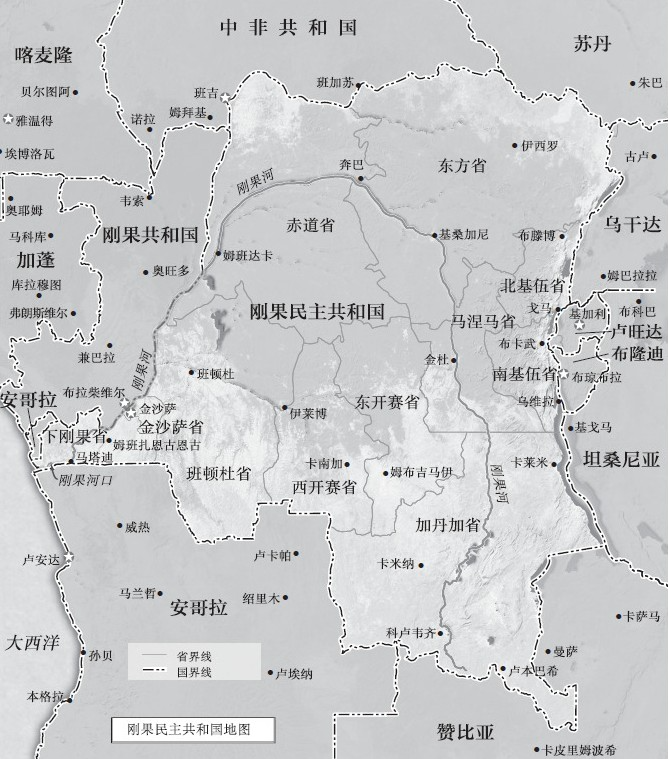
JosephMobutu is one of these Chinese scholars. In his early years, he trained as an internship typist and a reporter. Since then, he has ruled the country for thirty -two years, promoted the unity of the country, cultivated national culture, and renamed the country to "Zaire" in 1971 to "Zaire". , But also caught government agencies into despair. Although Monbok's rule was quite popular at the beginning, it laid the root of Zael's collapse. By the 1980s, Montbotito (then he had renamed it as Monopo Cecerdo) and became more and more suspicious, and he did not trust his government and army; Internal opposition, he destroyed his institution and facilities in one hand. Political intervention and corruption have corroded the judicial system, administrative system, and security system. Montboto can only resist various military challenges by allies and mercenaries during the Cold War. With the end of the Cold War, even such support forces are becoming more and more difficult to find. After that, the fuse was ignited in 1994: the civil war of neighbors Rwanda, 800,000 Hutu and Tutsi (Tutsi) died of the ethnic massacre led by the Hutu armed elements and the military, Essence After the power of the Hutu government, the Tumen Patriotic Front, headed by the Tumen, headed by Paul Kagame, appeared on the throne of power. Il, who escaped together with soldiers and militants who participated in the Holocaust. The defeat of the Rwanda army was not the only group for refuge. In order to become a local power guest, Montboto, which was means, has collected more than a dozen different foreign armed forces on his territory. By 1996, Angola, Uganda, and Rwanda established a regional alliance to overthrow the rule of Monbo.
Waiting for the refugees that cross the Congo to Rwanda (2001)
Finally, in addition to the national and regional reasons, this conflict also has the local level, which eventually leads to an unprecedented bleeding incident. The central government is weak and incompetent, and the hostile ethnic groups and conflicts are therefore spreading corruption and ulcers to spread on the land of the Congo, especially in the eastern region of the Congo, which is adjacent to Rwanda and Uganda. In the last few years of Monbok's power, he and the government officials deliberately incited these ethnic groups to hate each other for their own selfishness, so that domestic no longer focused on challenging their ruling legitimacy and recruiting supporters for themselves.
03
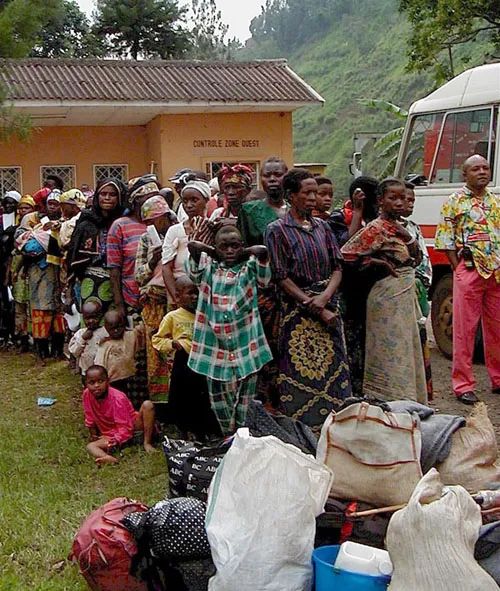
The Congo never has the soil where the idealist survives
This book tells the conflict that has continued to the present since 1996. This war can be divided into three parts. The first stage was the first Congo war, and it ended in May 1997 as the Monopo Cyrus Saico regime ended in May 1997. After a brief intermittent period, the new President Laurentkabila and the previous ally, Rwanda and Uganda. In August 1998, the Second Congo War was triggered until a papers peace agreement in 2003 Let the country be reunited again. However, the war in the east of Kivu (KIVU) has not extinguished today, which can be regarded as the third stage of this war.
This book pays more attention to the victims rather than the victim. It is more concerned about the survivors of politicians and military commanders instead of the crime of gaming and rape. Although many war participants will change between these classifications. I will not have too much ink on various terrorist crimes in the war. Although this topic cannot be turned around, I decided to clarify the nature of this system as much as possible. The choice space created such chaos and suffering.
What kind of system is this? When I was about to finish this book, a member of my Congo member told me: "In the Congo, for the sake of survival, each of us has to be corrupted and colder. This is the system here. This is here. This is the here. Reality. If you do n’t order bribes, it ’s not good for people’ s prejudice, and those who are willing to do so will replace you. ”He blinked and said,“ Even if you are thrown into this system, you will be able to be thrown into this system, you will be able to be thrown into this system, you will be you. Do this. If you don't do this, the end will be miserable. "
There are many examples in reality that can confirm his claims. Former Prime Minister Etien Zesaikidi had stubbornly insisted on the government's must respect the Constitution, and even briefly withdrew from politics, although he returned to politics to participate in the election. The former rebel leader Wamba Dia Wamba mentioned in this book will have a very ideal idea of the rebels, which has caused him to become a pivotal marginal figure. We can make an interesting idea: throwing the young and well -known Gandhi Gandhi to the Congo to see if he can make this country change in the principle of non -violence and not cooperation. Che Guevara, a Cuban revolutionary, spent nearly a whole year fighting against the rebels in the East Congo, and finally gave up the struggle. Therefore, he concluded that the malnutrition and mental depression concluded that the Congo person "has not yet prepared a revolution." The Congo never has the soil where the idealist survives. Even Loron Cabilar, the president of the typical strong politician in many people, is sharply realized how deep the social crisis of the Congo is. As a speaker who loves preaching, Kabila often turns his speech into a moral lecture. "Where are you, the Zail people ..." He would start with this sentence, a finger pointing to the sky, and rebuked the people present to tolerate the morality of the entire country to continue to decline in such a long time. "Who wasn't Monopo party before this country?" At a press conference, he asked like this, "I dare to say that three -quarters of the country have been in the same fluid with Monbo! I think you are all for the tiger. Leave this! "
Papy Kamanzi is an example. He shows how easy it is for a person to show moral degeneration. A 30 -year -old young man, from the Tussi ethnic minority, has achieved the position of the middle commander in the army, and has an effort for the four different armed groups. I interviewed him a dozen times in more than two years to try to understand his experience. We became friends, and he invited me to know his young wife and two children at home. In the end, in our last few conversations, he had a emotional collapse, and began to tell me what he played for a Rwandan dare team in the Eastern border city of the Congo in the Eastern border of the Congo in 1997. He and other sixty soldiers were ordered to be arrested. The "dissidents" mentioned here usually refer to all the Hu Tutu refugees. Pippi can kill up to one hundred such "unusualists" every day. Some are old women and children. They usually break their trachea with a rope and kill them alive.
"Why do you want to do this?"

"I can't help it. If I don't do this, they will doubt me," he replied, but then he looked at me and said, "You know, many times you can't explain this kind of thing. To our soldiers. For example, killing is easy. This has become part of our lives. I lost five family members during the war. You must understand this. You must understand the past of our family -how we have been persecuted , Then benefit from Montboto, how we were rejected to grant citizenship, what kind of ridiculous laughing in school, and how they spit on my face. Then you can blame me. " In his heart, I couldn't understand what he said.
In any case, I wrote this book to understand: to explain to the murderous society, political, and institutional forces that make such a man from the Gu family. Camilians, and everyone who is the same as him, is not like evil in his bones. We need to find other reasonable explanations.
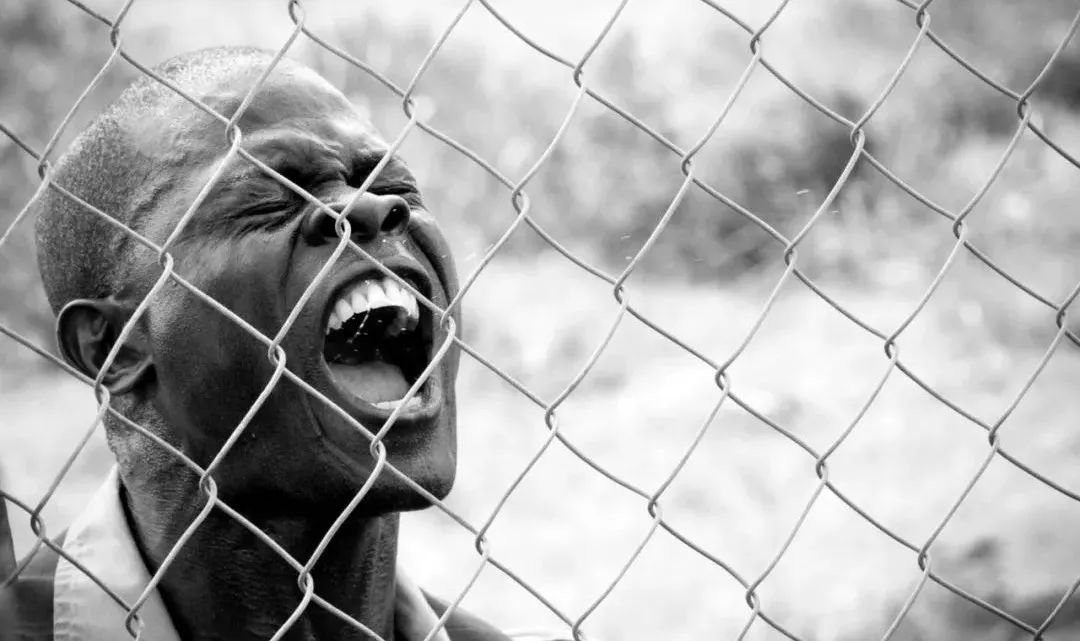
- END -
It intends to announce the $ 600 billion G7 infrastructure plan, US officials: indeed later than China

For Biden, Germany was the beginning of its recent diplomatic journey. Shortly aft...
Lagarde: Euro zone economy is facing greater uncertainty

Xinhua News Agency, Brussels, June 20 (Reporter Kang Yi) The European Central Bank...